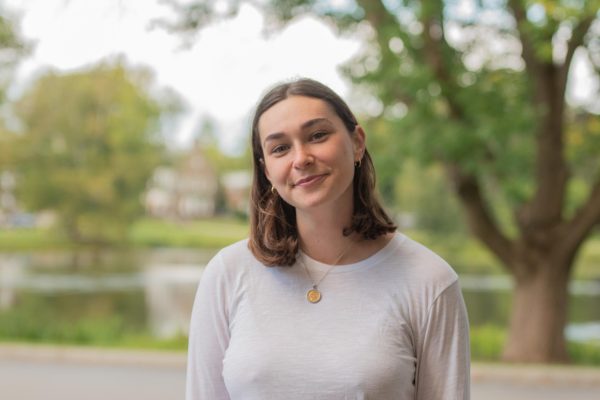SGA Holds Elections as Positions Remain Unfilled
Colgate University’s Student Government Association (SGA) has hosted its annual elections for various open positions across class years with 10 seats remaining unfilled in the Senate.
The SGA Senate has 10 seats available per class year, giving the full Senate chamber 40 seats overall. This year, the first-year and sophomore classes filled all 20 of their seats, while the junior and senior classes had only 10 senators between them, producing a total of only 30 senators for the 2022-23 academic year.
While having less than a full set of senators was not ideal, its negative impact on the SGA was ultimately minimal, according to senior and Student Body President, Shane Knopp.
“Not having a full Senate does not have a huge impact on SGA operations beyond making Faculty Governance Board assignments slightly harder and inevitably decreasing representation in policy and legislation votes,” Knopp said.
Knopp stressed that this year’s incomplete chamber was actually part of a multi-year trend and therefore predictable.
“Since we’ve been at Colgate, the upper-level Senate seats have never been fully filled, so we expected to have about 30 Senators this year,” Knopp said.
As for the disparity between the number of underclassmen senators and upperclassmen senators, Knopp believes that it is due to the elevated nature of the academic, extracurricular and professional commitments of upperclassmen.
“Juniors and seniors are more focused on career exploration and their academic obligations, which lead to schedule and workload conflicts with senior seminars, theses, and more,” Knopp said.
Junior Elina Sen-Ghosh, a senator for the Class of 2024, agreed with Knopp’s perspective.
“As you get older, you get busier,” Sen-Ghosh said. “I know many upperclassmen who were on Senate last year that decided not to run this year to prioritize their academic classes and commitments.”
Applying to the Senate requires collecting a petition of 35 signatures, only 15 of which can come from the candidate’s own residence building. Senators are then elected by the student body of the candidate’s class year. Sen-Ghosh found the requirements uncomplicated.
“My experience running was relatively seamless,” Sen-Ghosh said. “Writing a ballot statement was not very time-consuming […] I found collecting those 35 signatures manageable.”
The application process for the Cabinet is different from that of the Senate. Cabinet members are appointed by the SGA president and vice president instead of being elected by their class student body. Applying to the Cabinet required submitting a 200-word personal statement as well as a resume.
According to SGA Vice President Parna Shakouri, some Cabinet positions were quite competitive in regard to their number of applicants.
“We were excited to receive about 40 applications in the first Cabinet cycle, with up to seven for some positions including the Accessibility Advocate,” Shakouri said.
However, as Knopp and Shakouri wrote in an email to the student body on Sept. 11, they ultimately “decided to extend the deadline to apply for two remaining [Cabinet] positions: Chief of Staff and LGBTQ+ Life Coordinator.” Knopp and Shakouri wrote that all other positions had been filled.
According to the email, the Chief of Staff is a position that has a role in both the Cabinet and on SGA Executive Leadership alongside the President, Vice President, Liaison, Treasurer, Parliamentarian, and Speaker of the Senate. Due to its importance to the success of the SGA, Shakouri wanted to reopen the Chief of Staff application in an effort to attract more competitive applicants.
The position of LGBTQ+ Life Coordinator was new this year and had failed to receive any applications in the normal round of the application process. Nevertheless, SGA leadership viewed it as an important position to be filled.
“We wanted to be sure to recruit someone who would be passionate and intentional in the pilot year of this new position,” Shakouri said.
Shakouri confirmed that the two positions collectively received 12 applications in the second round, allowing her and Knopp to finalize the 2022-23 Cabinet in a satisfactory manner.
Sen-Ghosh also offered up an idea about how to increase student interest in the SGA in the future.
“I think that it would be lovely to provide students with a fuller picture of what the Senate actually does, as I believe more people would run if they understood the role of a Senator better,” Sen-Ghosh said. “This might involve having certain meetings with a Q&A after for students who are interested in running, to both observe how the Senate functions and ask any pertinent questions.”
Despite the minor challenges presented by this year’s application process, Shakouri was enthusiastic and hopeful about the strength and capabilities of the new SGA class.
“Our goal and hope is to empower all Colgate students, whether or not they are a member of the [SGA], to advocate for themselves,” Shakouri said. “We have an incredible group of students this year and we are excited to see what our team can achieve.”

Sophie Karbstein is a sophomore from Jupiter, FL concentrating in Russian and peace and conflict studies. She has previously served as a staff writer for...







